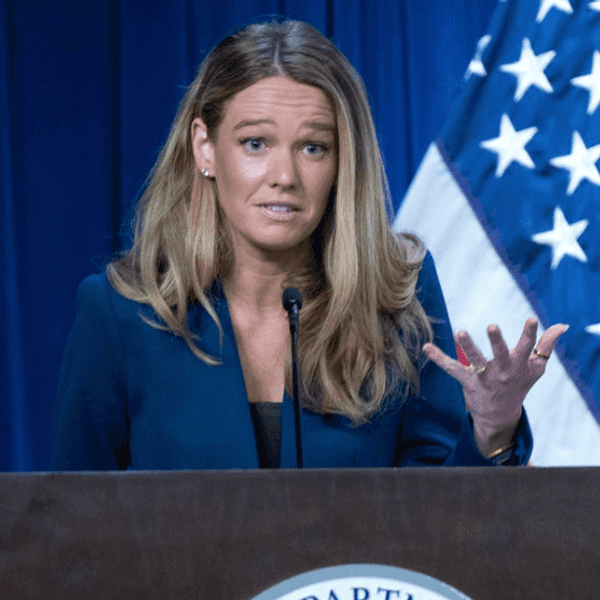
Britons will shape the future of the United Kingdom and Europe on Thursday when they decide whether to stay in the European Union following a campaign that has shown the potency of anti-establishment feeling in the West.
The vote comes a week after the murder of a lawmaker in the street left many voters wondering whether the campaign rhetoric on both sides – warnings of economic disaster versus uncontrolled immigration — had gone too far in a country considered a paragon of stability.
Whatever the outcome, the referendum could force the EU to rethink how it governs 500 million citizens and – along with the rise of Donald Trump in the United States – have far-reaching implications for the future configuration of the West.
Allies such as U.S. President Barack Obama and German Chancellor Angela Merkel have implored Britain to stay in the bloc, which they say has given Europe decades of prosperity after centuries of bloodshed.
Investors, chief executives and central bankers are bracing for what could be one of the most volatile events for financial markets since, at least, the 2008 collapse of Lehman Brothers.
Prime Minister David Cameron, who promised the referendum in 2013 under pressure from euroskeptic lawmakers in his own party, has mixed rhetoric about his island nation’s history with dire warnings about the costs and dangers of a Brexit.
“This referendum has now become a watershed moment for our country,” Cameron said when campaigning resumed after a two-and-a-half-day suspension called as a sign of respect for lawmaker Jo Cox, who was shot and stabbed last week.
“There is no turning back if we leave,” he added, warning this would be “an abject and self-imposed humiliation” that would leave “a permanently poorer country in every sense”.
The murder of Cox, a 41-year-old mother of two young children who was an ardent supporter of EU membership, shocked the country and abruptly changed the tone of the caustic campaigning that has polarized the country.
Both sides have accused their opponents of misleading the public, and critics say the debate had descended into a negative row over the economic dangers of leaving versus the difficulties of limiting immigration if Britain stays.
Witnesses to the Cox attack said the accused, 52-year-old Thomas Mair, was heard saying “Britain first, keep Britain independent, Britain always comes first”. Such comments added to speculation the murder was politically-motivated, making it a potentially defining moment in the referendum.
Campaigners said events and leafleting would go ahead as planned this week, but the rhetoric would be scaled back.
“People are thinking carefully about the conduct of this campaign, perhaps taking a more respectful tone towards opponents,” said a “Stronger In” campaign source. Leave officials would not discuss the details of their campaign plans.
Voting begins at 0600 GMT on June 23 and closes at 2100. Results are due around 0000-0500 GMT the next day.
Opinion polls have painted a contradictory and volatile picture of British public opinion with Remain ahead for much of the campaign but Leave taking a late lead before the Cox murder.
A vote to leave could unleash turmoil on foreign exchange, equity and bond markets, lead to a political crisis in Britain and fragment the post-Cold War European order.
The EU would have to weather the exit of its No.2 economy representing $2.9 trillion of its gross domestic product, the only European financial capital to rival New York and one of its only two nuclear powers, while Britain’s economy could stall.
A vote to remain would trigger a rise in sterling and relief in Western capitals but would still leave Britain – and Cameron’s ruling Conservative Party – deeply divided.
WHAT KIND OF BRITAIN
The murder of Cox in the street of her own electoral district in northern England has shocked Britain, which has strict gun controls, and sparked soul-searching about a referendum which both sides admit is about much more than membership of the club it joined in 1973.
“The referendum was always about more than Europe; it was always about what kind of Britain we are and what we aspire to be,” former Prime Minister Gordon Brown, who is pro-membership, said in an article for the Guardian newspaper.
“But some have attempted to hijack a decision on the future of Britain in Europe and turn it into a vote on immigration, and then on immigrants and those who support immigrants.”
It was not clear what impact the killing would have on public opinion or even if pollsters, who failed to forecast Cameron’s decisive election victory, were reliable guides.
In the week before Cox’s murder, the Out campaign had developed a strong lead in opinion polls.
But a YouGov poll, for which a third of responses were gathered before news of the killing, showed support for staying in the EU had risen 5 percentage points to 44 percent while support for leaving had fallen 3 points to 43 percent.
“The underlying figures suggest the movement may be more to do with people worrying about the economic impact of leaving the European Union,” YouGov said.
Gisela Stuart, a Labour lawmaker who is helping to lead the main Leave campaign, urged politicians and voters to “reflect on the hate-filled language that too often scars our debates”.
“We must take care before assuming that anger turned up to maximum volume should be the default way to hold a political discussion,” said Stuart, who added that Britain had to take back control of its own laws.
THREAT TO EUROPE
Britain has been divided over its European destiny since it lost its empire and though it eventually joined the EU, it remained a reluctant member outside the core euro zone.
Leave campaigners have said Britain would prosper if it broke free from what they say is a doomed German-dominated bloc and a failed project in excessive debt-funded welfare spending that has usurped sovereignty from the people.
Boris Johnson, seen as a leading contender to replace Cameron as Conservative leader and prime minister, even contended that the bloc was following the path of Adolf Hitler and Napoleon by trying to create a European superstate.
“Napoleon, Hitler, various people tried this out, and it ends tragically,” Johnson said in a newspaper interview last month. “The EU is an attempt to do this by different methods. But fundamentally what is lacking is the eternal problem, which is that there is no underlying loyalty to the idea of Europe.”
But allies have warned that ditching a 60-year strategy of trying to hedge partial European participation with the U.S. alliance, for an uncertain future outside the world’s biggest trading bloc, would be a hammer blow to Britain’s economy and would shred what remains of its global clout.
Beyond British shores, an exit would pose a major threat to European integration.
While the collapse of the Berlin Wall in 1989 and the Soviet Union in 1991 spurred integration as the Cold War melted into the archives, a Brexit could unravel a union already grappling with differences over migration, the future of the euro zone and how to deal with Russian President Vladimir Putin.
“A vote to leave would shake the union,” German Foreign Minister Frank-Walter Steinmeier said. “It would not just carry on as 28 (members) minus one.”
“It would require concerted efforts to ensure that the union holds together and that a decades-long, successful integration effort does not end in disintegration,” he said.
Even if a Brexit didn’t unravel the EU, it would ensnare Brussels and London in years of complex negotiations that could lead to a decade of economic uncertainty while a Brexit would embolden euroskeptics in other member states to press for their own renegotiations and referendums.
Pro-Europeans, including former Prime Ministers Tony Blair and John Major, have warned an exit could trigger the break-up of the United Kingdom itself by undermining peace in Northern Ireland and bolstering the Scottish independence movement.
Scotland’s first minister, Nicola Sturgeon, told Reuters last week that the EU referendum was on a knife edge and that if England backs an exit that drags Scots out of the bloc against their will, Scotland may call a new vote on independence.
AFTER BREXIT
Despite Britain’s historical reticence concerning Europe, only 13 years ago its leaders were arguing about when to join the single currency and an EU exit was a far-fetched notion entertained only by skeptics on the fringes of major parties.
But the turmoil of the euro zone and migration crises, combined with growing anger at what many voters perceive as arrogant elites in London and Brussels, have driven demands for a Brexit.
Since the referendum was announced, companies from BP to Rolls-Royce, as well as international allies, have cautioned about the risks of leaving.
Some British leaders have questioned what sort of Britain would remain.
Washington has made clear that Germany would be its first ally of choice in Europe if Britain left. In the biggest intervention in the domestic affairs of a Western European ally since the Cold War, Obama warned in April that Britain would at “the back of the queue” for a U.S. trade deal if it left.
His comments chimed with warnings about the consequences of leaving from Bank of England chief Mark Carney, the City of London, U.S. investment banks and major trade unions.
But opponents of membership say such warnings about Brexit from global corporations and leaders have further fueled an anti-establishment wind that has grown in strength since the 2008 financial crisis.
“We are capturing that wind and I think it could be the thing which really drives us to victory,” Matthew Elliott, the head of Vote Leave, told Reuters last month.
“I wouldn’t see it as the wind of [presumptive Republican presidential nominee Donald] Trump – I think there is a much wider anti-establishment feeling across the world.”
(Editing by Pravin Char)
A school girl arrives with flowers to leave in tribute to Jo Cox, near the scene where she was killed in Birstall near Leeds, June 16, 2016. REUTERS/Phil Noble








